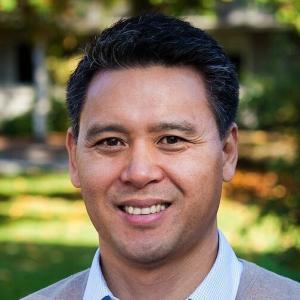Resources

Lurking on social media the other day, I listened to colleagues discussing how to respond to a student paper in a philosophy class. The assignment was about our responsibilities towards (nonhuman) animals. The student argued that we can do whatever we want with animals because God has given us dominion over them. Presumably, he had Genesis 1.26 in mind, but none of the course readings mentioned Genesis—or God.People in the social media group had lots of suggestions on how to respond:Tell him that religion has no place in the classroom.Tell him that there should be no theist or atheist premises in academic writing.Just write “Irrelevant” in the margin!That last comment got a lot of likes, hopefully because people found it funny and not because they considered it good advice.The consensus was clear: Tell the student that appeals to scripture are inappropriate in college papers.I don’t think that’s good advice.My colleagues were ignoring something crucial. In this sort of situation, we can do deep damage to our relationship with our student and to the student’s relationship with higher education if we don’t tread carefully. Presumably the student who wrote this paper believes in God and the Bible. His religion will be part of his ethical decision-making going forward, and the Bible will influence his thinking and his actions.Bearing this in mind, let’s not tell this student that his thinking about right and wrong in class must be utterly divorced from his thinking about it outside the classroom.My advice would be: Before writing any comments, identify your larger goals. Here are mine:I want our class discussions to help inform my students’ thinking and actions about ethical issues, and in particular about whether it’s OK to do “whatever you want” with animals.I want students to listen when I try to teach them more things after this and I want other professors to be able to teach them even more things. If I reinforce a student’s likely skepticism about professors and religion, I make that harder.I don’t want my actions to increase the chances that my students go out in the world thinking of higher education as an enemy to religion and God.These goals suggest a different approach. Start by taking the paper seriously:Do you think that’s what the Bible means by ‘dominion’? Some people think so, but I've always thought it meant something more like ‘stewardship.’ I mean, God is the Father, right? So, I think of it like if your parents go out and put you in charge of the family dogs. If they come home and discover that you haven’t fed them or given them water, they’ll be mad at you.What do you think someone who doesn’t believe in God and the Bible would make of your argument? How would you persuade them? For instance, imagine that you’re talking to the author of our second reading or to the other kids in the class.I would count this encounter as a success if the student feels like I’m treating him and his religion with respect and if he realizes two things:“Dominion” could mean “stewardship” instead of “freedom to treat them any way I want,” and I need to think more about which one the Bible meant.I need to talk about this differently or I won’t be able to persuade people who don’t believe in the Bible.That’s a start. Much more has to happen before this student writes at college level. Later, I and his other professors will teach him more.It’s a very small step. Growth and intellectual development takes time. I probably won’t see the result of the learning process that I was part of. But occasionally I do.My greatest success story in this context is a student who came into my Intro to Philosophy class as a freshman, determined to prove that Christ rose from the dead. It was rough going, but by the end of the semester, his sources weren’t cringeworthy anymore, and he was presenting an actual argument. And he still trusted me. He majored in math but took Philosophy of Religion with me as a senior, and he explained that he wanted to continue developing his proof.I braced myself. But during the semester, the class discussed faith and reason extensively, and I was able to ask him (privately): Given that you think about faith as being the important thing, what makes it so important to you to prove that Christ rose? He thought about it for a long time and finally decided that he didn’t need to prove that Christ rose. Instead, he wrote a strong final paper in which he reflected on the meaning of faith, discussing his own experience and the course readings.I rarely get wins that size. But taking my students’ religious views seriously makes them possible.

The best thing anyone ever told me in graduate school rings as clear and true today as it did then. It was during the first year of my doctoral work after one of my classes that my instructor pulled me aside and said matter-of-factly, “Mark, you’ve got a chip on your shoulder, and you need to do something about it.” We had finished one of her class sessions when I followed her out of the classroom and wanted to ask some follow-up questions from our discussion. I could tell she was frustrated with me from the tone of her voice and the directness of the message. I paused. My lips began to quiver and my eyes started to well with tears, and yet I will be forever grateful for the truthfulness of those words, for their bite, and their ability to catalyze a sorely-needed recalibration in my life. Up to that point, I was a student who had learned to verbalize my thoughts aloud by asking questions and offering many comments. I was curious and it helped me work through my questions. It also made me look and feel smart, or so I believed. Looking back on those days, my academic insecurities resulted in a lot of unnecessary verbal processing and quite frankly, some badgering. The formation of an academic scholar cuts both ways. On the one hand, I learned in different graduate schools to look at reality and theory from multiple angles. Interpretations and understandings are usually more complex than any single reasoning and a thorough search of these multiplicities is not only scholarly, but integrous. It takes careful tending for an academic to hone their craft well in areas of curiosity, observation, research, and reasoning. And this refining results in one of the best parts of academic formation, which is to see and name complexity. On the other hand, untended graduate academic formation has the potential to harm. The very skills that afford us the capacity to rigorously research a matter can ironically produce in us a rigidity that locks us into our arguments and reasoning. We may cease to consider an alternative explanation, or worse, adopt inflexible forms of argumentation and reasoning for the sake of being clearly the only right one. Having clarity and conviction while holding complexity isn’t an issue; neither is the practice of logic and debate. Rather, an underlying and often unnoticed dynamic of needing to be right, or to be the smartest one, or the recognizable one, is what is troubling about this kind of formation in an academic. This is why tending to our formation while in graduate school and beyond is so important for those in the academy. In graduate school we are introduced to, and then eventually hold on our own, many powerful tools and capacities that can help to heal, transform, and harm. What my instructor did for me that day was to awaken me to things I could not see about myself and how I held myself in graduate school and our learning community. My hunch is that she knew she could do this because she was not only my advisor, but also a mentor. My hunch is that in some way, she knew she had to take this step for other community colleagues and for my future. Her truthfulness cut right through any theory or concept and hit home because it came out of a good, and frustrated, place where I could receive this difficult word well and sit with it for days. In some ways, I should not have been surprised by this encounter because my academic trajectory had reached a point where being the one who asked (unnecessary) questions and offered tiresome rebuttals was sadly powerful. I needed this demonstration of love and care though I did not know I needed it until it actually happened. My personality is such that I will always have an edgy, passionate, and direct side to who I am as both a professional and an academic. However, because someone in graduate school took the time to tell me something I really needed to hear, I find that I can hold these parts of who I am more reasonably now. I am working on not always having to respond to statements I do not agree with and finding other ways to contribute to the process than with unnecessary words, and I am (and I think others around me are) the better for it. So, what is the best thing anyone ever told you in graduate school?